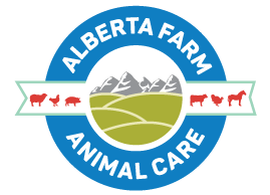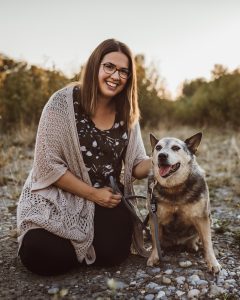This is the 2022 Alberta Farm Animal Care Annual Report. Here you can find all the info on what AFAC did in 2022 including workshop recap, our extension activities, info on our 2022 Livestock Care Conference and more.

ALERT Line : 1-800-506-2273
This is the 2022 Alberta Farm Animal Care Annual Report. Here you can find all the info on what AFAC did in 2022 including workshop recap, our extension activities, info on our 2022 Livestock Care Conference and more.
By Kendra Juurlink, B.Sc (Agr), Alberta Farm Animal Care
Consumers’ perspective of animal welfare across the world is an important topic for producers. Consumers have beliefs of what they consider as the ideal method of raising animals for meat consumption. Research has been done in Europe and the United States about this topic however, Australia presents an important area of concern from an economical and cultural perspective of agriculture.
A research study, Values of Australian Meat Consumers Related to Sheep and Beef Cattle Welfare: What Makes a Good Life and a Good Death? | SpringerLink, was completed to analyze the attitudes of participants regarding the animal welfare of beef and sheep being raised for meat consumption. A qualitative study was done using open-ended questions for focus groups to obtain responses from participants in the research study.
One finding of the study included the relationship between the producer and animal was an indicator of animal welfare. Another finding of the study was that participants avoided the topic of slaughter. One reason for this was that participants had limited knowledge about slaughter and were not interested in learning more about slaughter practices. Participants believed that animals should have a good life but also a “good death” and a right to do so.
Participants also believed that stress on the animals had an impact on animal welfare and meat quality. The participants believed that animals that travel long distances are placed under an extreme amount of stress which can result in poorer meat quality. This can impact the nutritional value of meat and the quality of life for the animal during transportation.
The study also addressed the beliefs of consumers regarding Halal slaughter which is a ritualistic method of slaughter according to some cultures which does not including stunning the animal prior to slaughter.
This research study is important for the economic benefits of production for producers. If consumers have negative perceptions of animal husbandry practices, then it could have negative implications for producers attempting to sell their products. Good animal welfare practices are also important for the overall well-being of farm animals.

Submit articles to Kendra Juurlink at [email protected]. If you have any questions, please e-mail Kendra, or call the Alberta Farm Animal Care office at 403-652-5111
By Kendra Juurlink, B.Sc. (Agr), Alberta Farm Animal Care
The condition of calves at a feedlot is an important consideration for producers. The calves experience various stressors, including weaning, transportation and adapting to new environment and feed sources. This can result in calves developing various health conditions including, bovine respiratory disease (BRD).
A research study published in January 2023, in the Applied Animal Behaviour Science Journal, Feeding behaviour and activity of beef calves during the first week at the feedlot: Impact of calf source and commingling ratios – ScienceDirect examined the impact of calf source and commingling ratios on feeding behaviour
The calves were brought from three sources including auction-derived, preconditioned and ranch-sourced calves. Preconditioned calves were those that had gradual weaning strategies, early castration and pre-exposing calves to a feedbunk. The calves behaviour was examined throughout the study. Level of activity, eating and time ruminating was examined. The calves were placed in pens based on where they were sourced from and in different ratios.
Some of the key findings from the research study included, preconditioned calves that had been exposed to a feedbunk had increased time eating. As well, pens that had higher proportion of preconditioned calves had increased time eating.
“Variables that may explain differences in feeding behaviour may include changes in the structure of social groups within commingled pens. “-Abigail Hodder
These findings are significant for producers because poor feed intake can result in morbidity and mortality at a feedlot. If calves are preconditioned to feedlot conditions, the more likely they are to maintain feed intake and level of activity which is important for producers from an economical standpoint and consumers from a consumption standpoint.

Submit articles to Kendra Juurlink at [email protected][email protected]. If you have any questions, please e-mail Kendra or call the Alberta Farm Animal Care office at 403-652-5111
By Sarah Linde B. Sc (Agr), Alberta Farm Animal Care
Considering broiler farming is becoming one of the fastest growing sectors in the agriculture industry consumer perspectives on animal welfare practices are often as important if not more important than product quality. In a recent study in Poultry Science, outlined four husbandry factors which influence animal welfare and how they relate the meat quality in broiler birds.
The key areas of husbandry that were explored were: diet, enrichment, stocking density and genetics. Notably, diet was the most heavily researched area of husbandry, as it has the clearest relation to meat quality and animal welfare. Pasture and forage availability has shown a remarkable change in birds antioxidant system as well as a darker more intense colour in meat.
Enrichment was an interesting area to look at, enrichment methods including outdoor access and perches were both studied. While enrichment tools didn’t overall have positive effects on meat quality, enrichment was identified as an important welfare factor for the consumer. This should be considered as a vital key for the social acceptability of broiler farming. Consumer buying power is becoming more focused on how that animal was cared for through their full life cycle.
Stocking density and genetics have expected research results. Lower stocking densities directly resulted in an increase in meat quality as well as welfare. New and evolving genetics have also been introduced to the market which show increases in meat quality for the consumer.
Overall, broiler husbandry and meat quality show a strong link throughout the lifecycle of the bird. These results should be a significant indicator for producers in their management practices not only for meat quality but for the consumers opinion on animal care and welfare.

Submit articles to Kendra Juurlink at [email protected]. If you have any questions, please e-mail Kendra or call the Alberta Farm Animal Care office at 403-652-5111
CALGARY, ALBERTA: Beginning March 1, 2023, Alberta Farm Animal Care’s current Extension Coordinator, Dr. Melissa Moggy, will be on maternity leave. Filling the role in her absence will be Sarah Linde. Sara began the interim Extension Coordinator position on February 13, 2023, to allow time to learn the ropes from Dr. Moggy and ensure a seamless transition into her new role.
Sara comes to Alberta Farm Animal Care with an extensive history in the Agriculture and Livestock sector, including experience working with Ag For Life and the Calgary Stampede. Since 2019, Sara has also been a Coordinator for the AFAC ALERT Line, responding to calls regarding animal welfare issues and providing information to inquiring callers. She brings her understanding of AFAC operations, mission, and values to this crucial organizational role.
“I am thrilled to be joining the Alberta Farm Animal Care team in an expanded capacity as Extension Coordinator,” said Linde. “Working as an Alert Line Coordinator for the past three years has given me an appreciation for the work being done by the AFAC team, and I am excited to leverage my industry experience supporting and developing extension programming throughout Alberta.”
While Dr. Moggy does leave big shoes to fill while she is gone, we wish her the best in the expansion of her family. AFAC looks forward to seeing the positive additions that Linde will make in her interim role as well as her leadership on the new initiatives and public outreach planned for 2023. Extension Coordinator duties will be in excellent hands.

~ 30 ~
Founded in 1993 by Alberta livestock producers, Alberta Farm Animal Care (AFAC) has become the collective voice of the industry on matters pertaining to livestock welfare. Through collaboration and with the support from our members, AFAC promotes best practices in the care and handling of farm animals for a thriving agricultural sector. Together, we work towards continual improvement in responsible livestock management by engaging the public and building trust through transparency. To learn more about becoming an AFAC member or supporter, click here.
For more information contact:
Kaylee Healy, Executive Director
Alberta Farm Animal Care
[email protected] | 403.652.5111